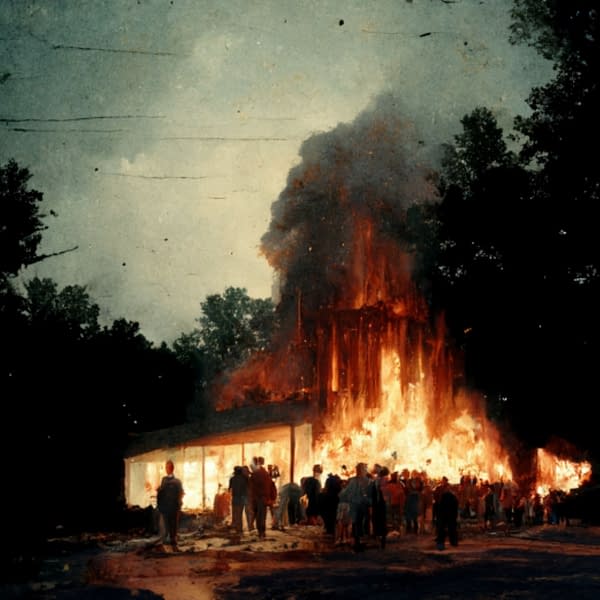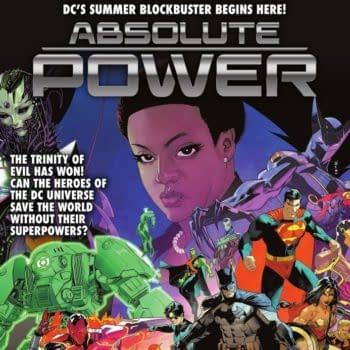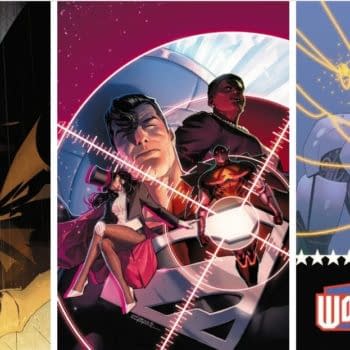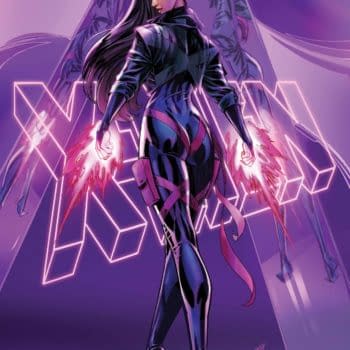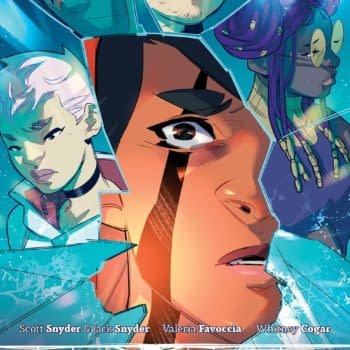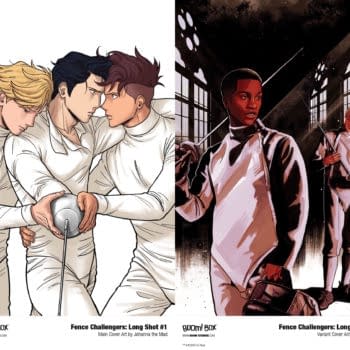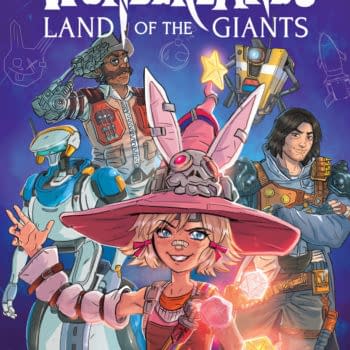Posted in: Comics | Tagged: Alison Bechdel. Khalil Bendib, Amir Soltani, Art Spiegelman, Carmen Maria Machado, Colleen AF Venableare, David Small, Deborah Hopkinson, Derf Backderf, dylan meconis, Ellen Crenshaw, evan dorkin, gender queer, Juno Dawson, Kelly Jensen, laurie halse anderson, Lita Judge, lois lowry, M.T. Anderson, Maia Kobabe, Margaret Atwood, matt bors, Mike Curato, Miles Hyman, missouri, neil gaiman, roxane gay, Rupi Kaur, ryan north
Neil Gaiman, Evan Dorkin, Ryan North Petition Missouri Over Book Bans
A number of prominent authors and artists have signed a PEN America open letter protesting against book bans in Missouri schools this autumn. Bleeding Cool has been covering the increase in such activity in the US, concerning schools, school libraries, public libraries and commercial bookstores which have been targeted over a number of titles, specifically those concerning racial, sexual or gender issues, with Gender Queer: A Graphic Memoir by Maia Kobabe published by Oni Press getting the brunt of the action. The authors and illustrators have all had books banned in Missouri or in other parts of the country in the past year and include Laurie Halse Anderson, M.T. Anderson, Margaret Atwood, Derf Backderf, Alison Bechdel, Khalil Bendib, Matt Bors, Ellen Crenshaw, Mike Curato, Juno Dawson, Evan Dorkin, Neil Gaiman, Roxane Gay, Deborah Hopkinson, Miles Hyman, Kelly Jensen, Lita Judge, Rupi Kaur, Maia Kobabe, Lois Lowry, Carmen Maria Machado, Dylan Meconis, Ryan North, David Small, Amir Soltani, Art Spiegelman and Colleen AF Venableare.
Missouri schools pulled at least 297 books from shelves this fall, including Spiegelman's graphic novel about the Holocaust, Maus, and graphic novel adaptations of George Orwell's 1984, The Bible, and the Gettysburg Address, according to tracking by PEN America. The book bans appear to be a response to a new Missouri law that contains a provision establishing a criminal penalty for providing "explicit sexual material" to students. Which, amongst many other novels and graphic novels, includes the Bible.
PEN America states "the bans in Missouri represent a grave threat to the freedom to read and will affect students across the state. And they are just one example of a larger effort to censor books in schools across the US that mcontinues to evolve, with mass removals of books, new legislative proposals targeting publishers, and the passage of restrictive school district policies."
Missouri's Senate Bill 775 – a law concerning the rights of survivors of sexual assault – went into effect in August. An amendment to the bill classifies the act of "providing explicit sexual material to a student" as a class A misdemeanor for any person affiliated with a school in an official capacity. In apparent response to the amendment and to the threat of prosecution it poses, at least 11 school districts have temporarily or permanently banned hundreds of books, seemingly purging their shelves to avoid running afoul of the bill's provisions.
A spokeswoman for Kirkwood School District, which banned 14 books, told the St. Louis Dispatch: "The unfortunate reality of Senate Bill 775 is that, now in effect, it includes criminal penalties for individual educators. We are not willing to risk those potential consequences and will err on the side of caution on behalf of the individuals who serve our students."
Graphic novels, comics, and books containing photography were particularly targeted in Missouri schools. The new law prohibits "any visual depiction" of a range of listed sexual acts. Books about the Holocaust and art history were also affected. Per one analysis, more than half of the books are about or written by LGBTQ+ people or people of color.
Specific books include works of photography by Annie Leibovitz, graphic adaptations of The Handmaid's Tale by Margaret Atwood, American Gods by Neil Gaiman, 1984 by George Orwell, Slaughterhouse Five and Breakfast of Champions by Kurt Vonnegut, The Good Earth by Pearl S. Buck, The Sacrifice of Darkness by Roxane Gay, and A Game of Thrones by George R.R. Martin, volumes of the Watchmen by Alan Moore and Dave Gibbons and The Walking Dead by Robert Kirkman, Tony Moore and Charlie Adlard. Numerous graphic novels, including the Pulitzer Prize winning Maus by Art Spiegelman, Flamer by Mike Curato, Gender Queer by Maia Kobabe, Fun Home by Alison Bechdel, and Zahra's Paradise by Amir Soltani.
While most districts banned 22 or fewer books, an administrator in the Wentzville School District directed librarians in August to remove any materials matching the language of the law, writing, "If you come across a text that needs to be removed …pull the book from the shelf." As a result, individual schools collectively pulled more than 220 books for an indeterminate period of review, including The Complete Guide to Drawing & Painting by Reader's Digest, six books about the Holocaust designed for teen readers, graphic adaptations of classic books including The Odyssey by Homer, Macbeth by Shakespeare, and selected works of Mark Twain, The Children's Bible, adapted by Sally Tagholm, a graphic novel adaptation of the Gettysburg Address by Jonathan Hennessey, dozens of superhero comics, including Batman, X-Men, and The Fantastic Four and 76 art history books whose subjects include Rembrandt, Raphael, Michelangelo, Leonardo da Vinci, Vincent Van Gogh, Pablo Picasso, Henri Matisse, Edward Hopper, and Georgia O'Keefe
Authors and illustrators have joined PEN America in opposing the book bans occurring across Missouri in an open letter to Missouri school boards. The letter calls on school district officials across the state to reverse these dangerous bans, and to put materials back on shelves where students can regain access to the banned books. You can sign it yourself, here.
To Missouri School Boards and Districts,
We, the undersigned, join authors, illustrators, and the literary and free expression organization PEN America, to protest the alarming book bans that have been enacted in Missouri schools this fall. These bans represent a grave threat to the freedom to read, much to the detriment of students across the state.
These bans have been enacted largely in reaction to a provision in Senate Bill 775, which makes the distribution of material deemed "harmful to minors" to students in Missouri by any school official (educators, librarians, student teachers, coaches) or by any visitor to a school, a misdemeanor punishable by fines or jail time.
What is the definition of "harmful"? Who decides? The new law focuses on "visual depictions" and "sexual material," and some school boards and officials have interpreted it broadly, removing an astonishing range of material: dozens of graphic novels and comics, books with photography, memoirs, and books about art history. In the ten weeks since the provision went into effect, at least 11 school districts have banned over 300 books. Several districts banned books from their libraries permanently. In one district, over 200 books came off library shelves for an indeterminate period of "review."
Provisions in the law that exempt materials of artistic or anthropological significance are clearly being ignored. Students have been barred from checking out works on Leonardo da Vinci and Michelangelo, graphic novel adaptations of classics by Shakespeare and Mark Twain as well as The Gettysburg Address, the Pulitzer-prize winning Maus, and other books about the Holocaust. Districts have banned comics about Batman, X-Men, and Watchmen; The Complete Guide to Drawing & Painting by Reader's Digest; Women (a book of photographs by Annie Leibovitz); and The Children's Bible.
Such overzealous book banning is going to do more harm than good. Book bans limit opportunities for students to see themselves in literature and to build empathy for experiences different from their own. They deprive students of the freedom to read–to think, to imagine, to grow. And photographs and illustrations can be vital to storytelling: a window into the past, a means of reflecting the human condition, a tool for helping reluctant readers engage with literature.
Students in Missouri are having these educational opportunities denied. They are bearing the brunt of a hasty and poorly considered reaction to a broadly worded provision that has spurred censorious acts across the state. They are having their right to access a diversity of ideas, information, art, and literature in school libraries diminished.
We urge school district officials in these 11 districts to reverse these dangerous bans, and to put materials back on shelves where students can regain access to them.


